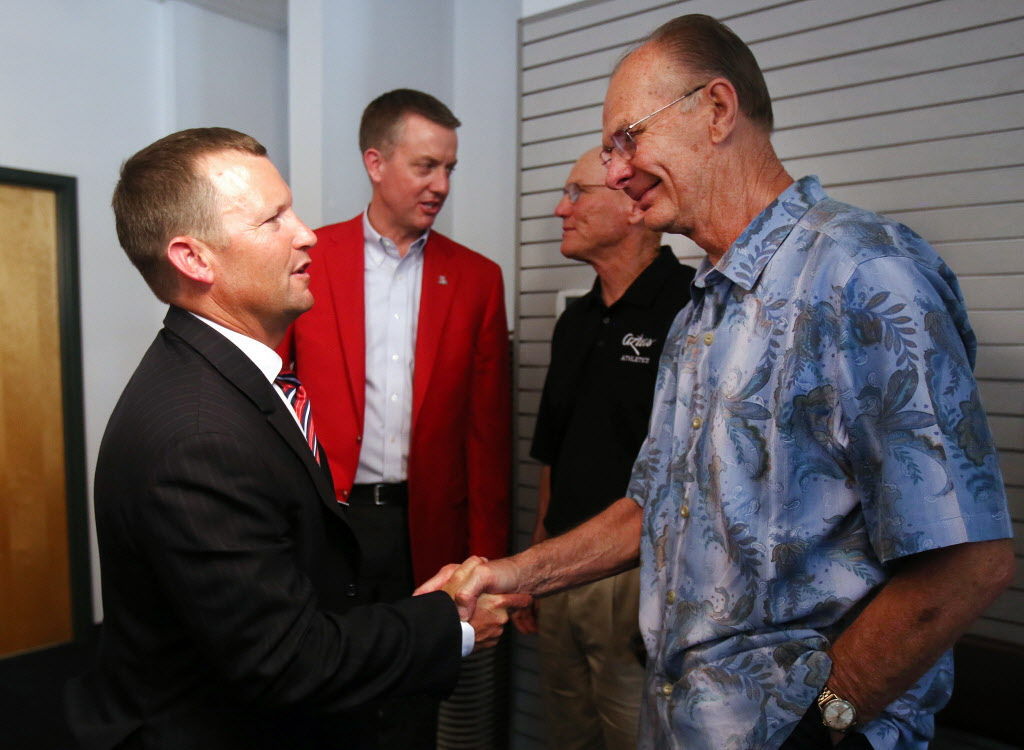If anyone knows what Jay Johnson and the Arizona Wildcats are going through this week in Omaha, it’s Jerry Kindall.
The UA baseball program’s all-time winningest coach took the Wildcats to the College World Series five times, winning national titles in 1976, 1980 and 1986. In the process, he became the first person in college baseball history to win a CWS title as both a player and coach.
Thirty years after leading the Wildcats to their third championship, Kindall, 81, talked to the Arizona Daily Star about his run — and why this year’s success gets his juices flowing:
They say when you coach at a school for as long as you did, it gets into your DNA; are you still following Arizona’s World Series run this year?
A: “Oh, yes, and I daresay I can speak for all the other coaches through the years who’ve had this experience, too. It’s so hard to get there, just into the College World Series, so when you get there, you know it’s going to be tough. And it’s still a mixed bag of great joy and accomplishment, but the mixed comes in with the nervousness and the anxiety. No one can convince me they don’t have it when they get there, but one thing I see happening with Jay and this ballclub is they’re loosey-goosey. I think that’s a good approach.”
What is the difference between winning in the CWS championship series and losing?
A: “The difference was — well, I don’t know the difference. Two of those three championships, we lost the first game, right into the loser’s bracket. In 1976, ASU beat us in 10 innings, but we were able to come back. … Now in 1976, and I think this was true of both times, it was a player who put us on his back and carried us there. In ’76, it was Ron Hassey; he was catching, we lost the first extra-inning game, and he was so bitter and upset, so mad, mad at everything, himself even, and we saw it in Ron himself. That was the late game, and we’d have to play the first game Sunday morning in the loser’s bracket and it was hot and muggy, and Ron went behind the plate — he was an ironman for us — and he just willed the victory, I thought. He didn’t rail at us, he just said, and I’m not even sure he verbalized it, but it was just: Follow me. He was drenched with sweat, and we saw it, we won, and went on to win the championship. It was like, ‘OK we lost a game, let’s forget that.’ And the players overshadowed the coaching. It was a thrill for us, the coaches.”
When it comes to the final three-game series, is it more the coaching or the players?
A: “We like to think what we have to say before the game is so critical. Boy it resonated! To be honest, I don’t know they needed a pep talk. When you see them take infield, come up to the plate for the first time, and you see the commitment and the earnestness that they’re playing with in a sudden-death game, it transfers to everyone else on the team. I can recall this: The final game is like, ‘We’re finally there,’ and it’s like, ‘I know we can do this.’ Then you have to make sure the players know they can do it.
“But it’s exhausting. It’s just exhausting to get to the final game. When you get there, you’re thinking, ‘What a wonderful opportunity to do something special.’ It’ll be historic. It remains historic in our minds, especially, the players and the coaches. One of the great blessings is when the players and coaches get together 40 years later and relive these things. Individual sports are tough, but I’m glad to have been coaching all these many years a team sport — to have so many people share in the great feeling of victory.”
Earlier we asked if Arizona was still in you’re DNA, but I’m curious — this time of year, with the Wildcats going this far, does it get your juices flowing? Does it bring up old memories?
A: “Yes. Yes. Easy answer to that. Good question, easy answer. Here I am, so many years later. I feel for the coaches, I feel for the players as they go through this. I feel it so strongly. I’m mad at myself for retiring. Baseball captures a person that way. A player or coach. You never lose the excitement. For great stakes, college baseball, our guys are doing it (Monday) and (Tuesday), maybe on Wednesday, and this is the epitome of it all. No matter if you try to be blasé about it, you can’t be. It comes out of you. I miss the feeling, and I’m grateful that this year, under Jay Johnson and the staff, that they’ll have this experience. I live it with them.”





